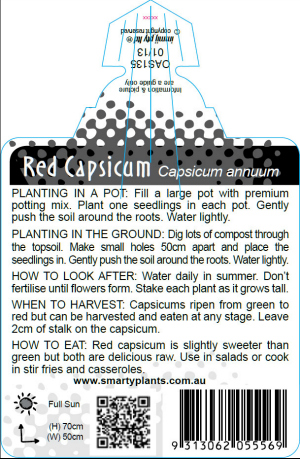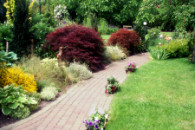A zone is an area that is different to another area. For example, a soccer field or netball court can be divided into different areas where only some people can go. Your school might have zones as well – the playground, the sports field and the undercover area. All of these areas are used in different ways.
A garden has zones too. The garden zones are divided up based on the amount of sunlight and water that they get. And then plants chosen to put into each zone should want the amount of sun and water that they will get there otherwise they won’t thrive at all.
Also, if all the plants that like the same amounts of sun and water are grouped together, there won’t be so much water wasted from the reticulation. For example, if you put Australian plants into an area that gets lots of water, it will be wasted because many Australian plants just don’t want it. Or, if you put vegies in an area that gets only two waters a week, they will probably not survive at all if there isn’t any rain.
It’s good to know the zones in your garden as it will help you decide which plants to grow in them. After all, if the plants are in the conditions that they like, they will grow big and strong, won’t be so bothered by pests and diseases and the garden will be waterwise.
IDENTIFY THE ZONES IN YOUR GARDEN
Start by drawing a map of your garden. Include all of the garden beds, the patio, the lawn and anywhere where there are plants. Then follow these steps to identify each zone.
Sun or Shade:
Choose a green, blue and yellow colouring pencil.
- GREEN PENCIL: Colour all the areas of the garden that get full shade. For example, the patio or verandah or anywhere directly under trees or undercover areas.
- YELLOW PENCIL: Colour all the areas that are in full sun. For example, lawn or anywhere that gets more than 6 hours of sun in a day.
- BLUE PENCIL: Colour all the areas that get part-shade. These will be the places where trees or buildings cast shade over the garden for part of the day but they get sun in other parts of the day. These areas might also get dappled shade.
Water:
This is where you show how much water each garden zone gets and you write the number from 0, 1, 2 or 3 on your map.
0 No water from reticulation or hoses at all.
1 Watered two times or less each week.
2 Watered every day.
Finally:
Once your map is finished, you should be able to identify your garden zones. Some will be in full sun and get lots of water and others will be in full shade and get almost no water. A mix of zones in the garden is a great thing as it lets you have a lot of variety in the plants that you choose.
 Now that you know the zones in your garden, you can use this information to help you decide what to plant into the garden. Plant labels will show the amount of water and sun the plant needs and you can use this to decide which part of your garden they should go into.
Now that you know the zones in your garden, you can use this information to help you decide what to plant into the garden. Plant labels will show the amount of water and sun the plant needs and you can use this to decide which part of your garden they should go into.
For example, capsicum like full sun and a water every day during summer as do many other vegetables and flowering annuals such as petunias. Australian native plants, Mediterranean plants and roses all need full sun but only two waters a week so they can all be planted together.
Since you now know the zones of your garden, you can research plants for every area or take the map down to the garden centre to ask the advice of the horticulturalists there as to what to grow in each zone.

